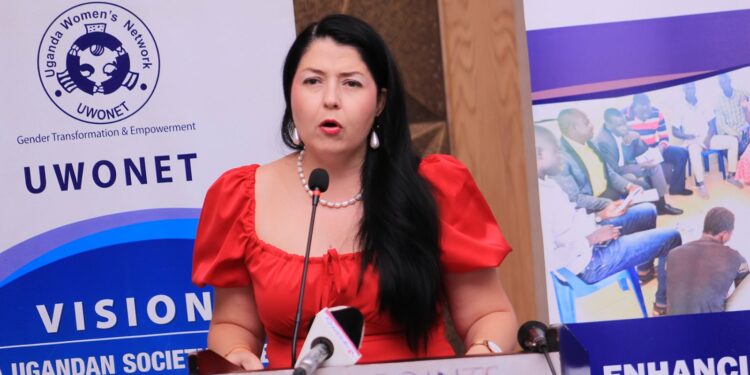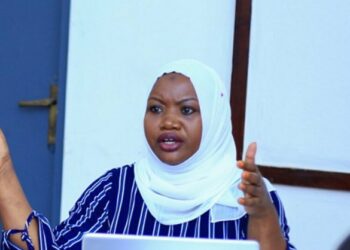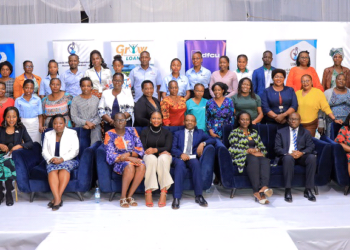As the global community marks 30 years since the adoption of the Beijing Declaration and Platform for Action, which set the stage for gender equality worldwide, questions remain on why its full implementation has yet to be realized in Uganda.
Dr Katja Kerschbaumer, Head of Development Cooperation at the Austrian Embassy, spoke candidly about Uganda’s progress during the UWANET 2024 conference on Monday at Sheraton Hotel Kampala, emphasizing the importance of aligning local practices with the Declaration’s goals.
She noted that while Uganda has made significant strides in women’s participation in politics and economic activities, barriers still exist, particularly in access to justice.
“Access to justice is a critical issue,” Dr. Kerschbaumer explained. “For many women in Uganda, legal systems often fail to address their unique needs, from gender-based violence to discriminatory laws, which limits their potential.” Despite global efforts to improve women’s legal standing, Uganda faces systemic issues where laws are not fully enforced, and cultural and financial obstacles hinder women’s ability to seek justice.
She revealed that many women face cultural, financial, and institutional obstacles when seeking justice. For instance, gender-based violence-a grim reality for millions-is often compounded by victim-blaming attitudes, fear of reprisal, and a lack of supportive legal frameworks. “In many regions, discriminatory laws perpetuate inequality, restricting women’s rights to inheritance, property ownership, or even legal standing in courts.”
While the Beijing Declaration inspired vital reforms globally, such as legal frameworks against gender-based violence, Uganda still struggles with gaps in enforcement. “The cost of injustice for women is profound,” Dr. Kerschbaumer remarked, underscoring that when women are excluded from justice systems, it perpetuates cycles of poverty and inequality.
She also pointed out the ongoing challenge of fully integrating marginalized groups, such as rural and disabled women, into the development process. “We cannot claim true progress until all women, regardless of their background, can access the same opportunities,” she stated.
Austria’s collaboration with Uganda, particularly in supporting women’s access to justice, aims to bridge these gaps. “The Beijing Declaration’s legacy is not only in its achievements but also in its call for continued action,” Dr. Kerschbaumer concluded. “We must ensure that the rights of women and girls are not only recognized but fully implemented.”
The Beijing Platform emphasized the importance of women’s leadership in decision-making processes. Since its adoption, the representation of women in parliaments worldwide has more than doubled, and women leaders are increasingly visible in politics, business, and civil society.
“Yet, true parity remains elusive, and the road to equal representation is still fraught with challenges. The Beijing Declaration continues to inspire advocacy for women’s full and equal participation in leadership at all levels. (Example: Uganda),” she said.
She noted that while the Beijing Declaration has brought us far, significant challenges remain: Progress has been uneven, with marginalized groups, such ups, as rural women, indigenous women, and women with disabilities, often left behind.
“Gender-based violence and discrimination remain deeply rooted in many societies. The COVID-19 pandemic highlighted and exacerbated gender inequalities including the digital gap and reminded us that gains can be fragile and require constant vigilance,” she added.
Do you have a story in your community or an opinion to share with us: Email us at editorial@watchdoguganda.com













